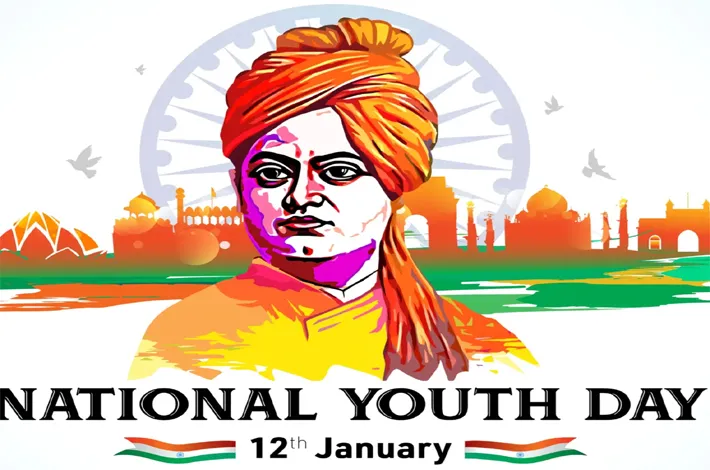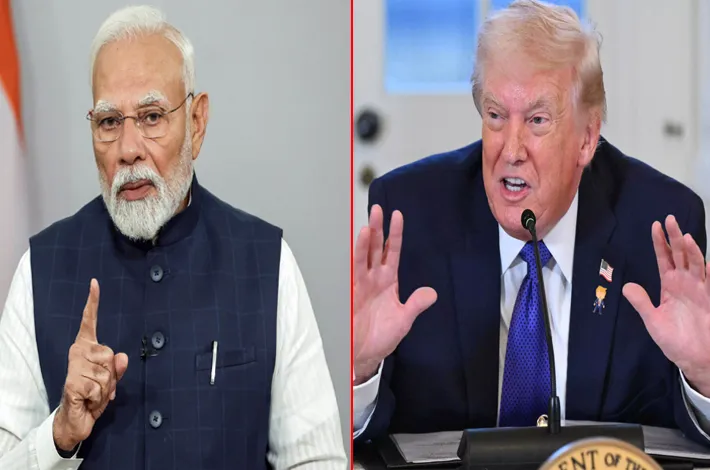The shadow of the loom
06-05-2025 12:00:00 AM

Back at the haveli, Vikram re-examined the saree. Its pattern was exquisite, but the zari was uneven in places, unlike Shankar’s usual perfection. He ran his fingers over the fabric, feeling a slight bulge. Carefully, he unraveled a thread, revealing a tiny scroll hidden within. It was a note, written in Urdu: Meet me at midnight. The deal must end
In the heart of Gadwal, a town nestled in the Mahboobnagar district during the twilight of the Nizam’s rule in 1935, the air was thick with the scent of jasmine and the rhythmic clack of looms weaving the famed Gadwal sarees. The town, cradled by the Tungabhadra River, shimmered under the sun, its narrow lanes bustling with merchants, weavers, and the occasional British officer. But beneath this vibrant tapestry, a darkness stirred.
Inspector Vikram Rao, a wiry man with sharp eyes and a sharper mind, was no stranger to Gadwal’s secrets. Born in the town, he’d risen through the ranks of the Nizam’s police force, his reputation built on solving cases others deemed impossible. That morning, as the muezzin’s call faded, a frantic boy burst into his modest office at the edge of the fort.
“Sahib, murder! At the Haveli of Nawab Asif Khan!” the boy gasped.
Vikram grabbed his khaki cap and followed the boy through Gadwal’s labyrinthine alleys, past shops displaying sarees with intricate zari borders. The haveli, a grand relic of Mughal splendor, loomed ahead, its arched gateways guarded by stone elephants. A crowd had gathered, their whispers buzzing like flies. Vikram pushed through, his boots echoing on the courtyard’s marble.
Inside, the scene was grim. Nawab Asif Khan, a wealthy patron of Gadwal’s weavers, lay sprawled in his study, a dagger buried in his chest. Blood pooled on the Persian rug, staining the edges of a half-finished saree draped over a nearby chair. The room smelled of sandalwood and death. Asif’s wife, Begum Zehra, sat in a corner, her face pale but composed, her silk saree immaculate.
“What happened here?” Vikram demanded, his voice cutting through the murmurs of the servants.
“He was found at dawn,” said the haveli’s steward, a nervous man named Qasim. “The Begum heard a cry and sent for me. By then, he was… gone.”
Vikram crouched beside the body, noting the dagger’s ornate hilt, engraved with a peacock motif—a hallmark of Gadwal’s finest craftsmen. The wound was precise, suggesting a steady hand. He scanned the room: a toppled inkpot, a scattered pile of ledgers, and the saree, its golden threads glinting in the morning light. Something about it felt wrong, but he couldn’t place it.
“Anyone enter or leave the haveli last night?” Vikram asked.
“No, Sahib,” Qasim replied. “The gates were locked, the guards alert.”
Vikram’s gaze settled on Begum Zehra. “You heard a cry?”
“Yes,” she said, her voice steady. “I was in my quarters. I thought it was a nightmare, but then… I sent Qasim to check.”
Vikram nodded, but her composure unnerved him. Grief, in his experience, was rarely so polished. He turned to the crowd. “Everyone, out. This is a crime scene.”
As the room cleared, Vikram examined the ledgers. They detailed Asif’s dealings with weavers, merchants, and a British trader named Reginald Holt. One entry caught his eye: a large payment to a weaver named Shankar, dated three days prior. Shankar was known for his skill but also his temper, especially when cheated.
Vikram headed to the weavers’ quarter, where looms hummed like a heartbeat. Shankar’s hut was modest, its walls adorned with saree patterns. The man himself, broad-shouldered and grizzled, was threading a loom.
“Inspector,” Shankar greeted, his eyes wary. “What brings you?”
“Asif Khan’s murder,” Vikram said bluntly. “You were paid recently. For what?”
Shankar’s hands stilled. “A special saree. Gold and silk, for the Nizam’s court. He paid half, promised the rest later.”
“And when he didn’t?” Vikram pressed.
Shankar’s jaw tightened. “I argued with him, yes. But murder? I’m no killer.”
Vikram noticed a fresh cut on Shankar’s hand, poorly bandaged. “That’s recent.”
“Caught it on the loom,” Shankar said quickly. Too quickly.
Back at the haveli, Vikram re-examined the saree. Its pattern was exquisite, but the zari was uneven in places, unlike Shankar’s usual perfection. He ran his fingers over the fabric, feeling a slight bulge. Carefully, he unraveled a thread, revealing a tiny scroll hidden within. It was a note, written in Urdu: Meet me at midnight. The deal must end.
The handwriting matched samples from Asif’s ledgers, but the intent was unclear. A deal gone sour? Blackmail? Vikram’s mind raced. He summoned Begum Zehra.
“This note,” he said, holding it up. “What deal did your husband have?”
Her eyes flickered, but she remained calm. “He traded sarees with many. I didn’t pry.”
“And with Reginald Holt?” Vikram asked, recalling the ledger.
Zehra hesitated. “Holt bought sarees for London. Asif was… cautious with him.”
Vikram’s instincts screamed. He tracked Holt to the British Residency, a stark contrast to Gadwal’s ornate chaos. Holt, a portly man with a walrus mustache, was packing crates of sarees.
“Inspector,” Holt said, wiping sweat from his brow. “Dreadful business about Asif.”
“Where were you last night?” Vikram asked.
“Here, cataloging,” Holt said, gesturing to the crates. “My boy, Thomas, can vouch.”
But Thomas, a nervous youth, admitted Holt had left the Residency briefly, claiming a “meeting.” Vikram pressed Holt, who cracked like cheap pottery.
“Alright!” Holt blurted. “Asif was smuggling jewels in the sarees. I was his buyer, but he got greedy, demanded more. I met him to negotiate, but he was alive when I left!”
Vikram returned to the haveli, pieces falling into place. The dagger, the note, the saree—it all pointed to a setup. Begum Zehra’s composure wasn’t grief; it was control. He confronted her in the study.
“You knew about the smuggling,” Vikram said. “And you wanted out. Asif wouldn’t stop, so you killed him, hid the note to frame Holt, and used Shankar’s saree to muddy the waters.”
Zehra’s mask slipped, her eyes blazing. “He was ruining us! The Nizam would’ve executed us if the smuggling was exposed!”
“You stabbed him,” Vikram said, stepping closer. “The precise wound, the dagger from your collection. You planned it all.”
Zehra lunged for a hidden blade, but Vikram was faster, pinning her arm. “It’s over.”
As Zehra was led away, Gadwal’s looms resumed their song, oblivious to the drama. Vikram stood in the haveli’s courtyard, the sun setting over the Tungabhadra. Another secret unraveled, but the town’s beauty, like its sarees, hid countless more.








